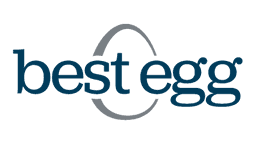If you’re dealing with making payments on several different loans, and looking for a way to get your debt under control consider a debt consolidation loan. Debt consolidation loans can be an effective way to streamline payments and reduce your interest charges and monthly bills. Debt consolidation loans are personal loans that you can use to repay several different debts such as high-interest credit cards or medical bills, and replace them with a single monthly payment with the goal of being debt-free by the end of the loan term.
Choosing a debt consolidation loan company can seem daunting when there are so many options available. That’s why we have done the research to find the best debt consolidation loans out there, so you can pick the one that works best for you.
SoFi
SoFi (short for Social Finance) was founded in August 2011 and was the first company to refinance private and federal student loans. SoFi began offering personal loans in 2015 and has since helped its members pay off more than $22 billion in debt.
Pros
- SoFi offers lengthy repayment terms and high loan amounts, so you can consolidate more of your debt and pay it off leisurely.
- SoFi pre-qualifies you for a loan using a soft credit check, which won’t damage your credit score.
- Offers low APRs and doesn’t charge orientation fees, late fees, or prepayment penalties.
- Once approved, you’ll receive funding in as little as one or two days.
- Offers unemployment protection, so if you lose your job you’ll be safe.
- You can change your payment due date once a year.
Cons
- SoFi does not offer direct payment to third parties, so you’ll have to schedule payments to your other loans on your own.
- SoFi does not allow co-signers, which can be a deal-breaker if you have bad credit.
- Additionally, some users have reported that SoFi has very high (and difficult) standards when it comes to qualifying for a loan.
Why we picked them
SoFi is a great option if you have an excellent credit score and want to consolidate your existing debt. Repayment terms can range between two and seven years, which means a lower monthly payment — a huge bonus if you don’t have a lot of disposable income to throw at your debt. Overall, the pros outweigh the cons for borrowers with excellent credit scores.
Check RatesOneMain Financial
OneMain Financial recognizes that all customers are different and therefore need unique treatment when it comes to their financial needs. While other lenders focus on credit score when it comes to whether or not they grant a loan to someone, OneMain Financial tries to look at the bigger picture before making a decision.
Pros
- There is no minimum credit score to qualify for a loan from OneMain Financial.
- Terms are clear and there are no prepayment fees if you are able to pay off your balance before the loan term is up.
- You can get the money on the same day you’re approved in many cases.
Cons
- OneMain Financial’s rates are steep compared to other debt consolidation loan companies.
- You’ll have to pay an origination fee.
- OneMain Financial doesn’t offer a discount for enrolling in autopay.
Why we picked them
With no minimum credit score requirement, OneMain Financial is a great option if your credit is less-than-desirable. While in exchange you’ll pay a higher APR than many competitors, you could still end up with a lower overall rate by consolidating your debt. OneMain Financial offsets the higher APR by offering direct payments to third-party creditors, which gives you one less logistical hassle to deal with.
Check RatesMarcus by Goldman Sachs
Marcus by Goldman Sachs brings more than 150 years of financial experience to the personal loan arena. The company aims to bring value to its customers, keep things simple and easy to understand, and be transparent about pricing and fees so there aren’t any hidden surprises.
Pros
- Marcus offers direct payments to third-party loans, up to 10 total.
- There are no fees for late payments, insufficient funds, or prepayment penalties.
- You can change your payment due date up to three times total over the term of the loan.
Cons
- Marcus does not allow co-signers, so it’s not a good option if your credit score is low.
- You must have a credit score of at least 660 to qualify.
- It can take up to four days after approval for you to receive your funds.
Why we picked them
Because Marcus doesn’t have any hidden fees, it’s a good option if you want to know exactly what you’ll need to pay on the loan. And if you are able to pay your loan off early, there are no prepayment penalties. Marcus also has highly rated customer support, so you can get your questions answered without having to go around in circles.
Check RatesFigure
Figure is the only company on this list to use blockchain technology for loan origination. Since it was founded in 2018, Figure has unlocked more than $2 billion in equity for its members and helped more than 30,000 U.S. households.
Pros
- Borrowers who sign up for autopay can get a 0.25% percentage point rate discount.
- Figure has an intuitive mobile app from which you can manage your loan.
- Pre-qualification uses a soft credit check that won’t have an impact on your credit score.
- Figure reports payments to all three credit bureaus, which can help increase your credit score.
Cons
- Depending on your state, you may have to pay an origination fee.
- Figure doesn’t give borrowers the option of choosing or changing their payment date.
- Figure has a high minimum credit score requirement and doesn’t allow co-signers.
- There are only two available repayment terms to choose from.
Why we picked them
If you’re looking for a loan with a 100% online experience, Figure is a good option. It also offers a rate discount if you sign up for autopay on top of its relatively low APR. For borrowers with good credit scores, Figure could offer the best debt consolidation loan.
Check RatesUpgrade
Upgrade was founded by some of the pioneers of the fintech industry. Though Upgrade itself has only been around since 2017, its founders bring with them a whole heap of experience. Since 2017, Upgrade has served more than 15 million customers and lent more than $10 billion.
Pros
- Upgrade lends to people with lower credit scores (of at least 580).
- Loans are available to cover business expenses.
- Upgrade offers direct lender payoff, so you don’t have to worry about it.
- No prepayment penalty.
Cons
- Upgrade’s APR range is on the higher end.
- They charge fees for late payment, origination, and insufficient funds.
- There are only two loan repayment periods offered.
- Upgrade’s loans are not available in Iowa, Vermont, and West Virginia.
Why we picked them
With a lower minimum credit score than its competitors, Upgrade is a good option for borrowers whose credit scores are less than desirable.
Check RatesBest Egg
Best Egg was founded to help customers manage their finances with ease by using smart technology and easy-to-understand products. Their debt consolidation loans, which are issued by Cross River Bank, are designed to help customers get on the path to financial freedom.
Pros
- Best Egg offers longer terms, up to five years.
- Personal loans have low minimum APRs.
- There is no prepayment penalty if you are able to pay off your loan before the end of its term.
Cons
- No third-party direct payment options.
- No options for terms longer than five years, and only two available term lengths.
- Best Egg charges an origination fee on its personal loans.
Why we picked them
Best Egg’s personal loan is a good choice if you’re looking for a loan term of up to five years. There is also no minimum income requirement stated on Best Egg’s website, so it could be a good option if your annual income is below the minimum required by other lenders.
Check RatesLendingPoint
LendingPoint was founded to help provide access to fair credit for those who may be unable to secure loans at other financial institutions.
Pros
- Pre-qualification uses a soft credit check that does not impact your credit score.
- You have the option to choose and change your payment date to best suit you.
- Funds are typically received the business day after approval.
Cons
- LendingPoint doesn’t offer an option for co-signers, making it inaccessible to anyone with a credit score lower than 580.
- Rates are on the higher side when compared with other debt consolidation loan companies.
- No direct payment to third-party creditors offered.
- LendingPoint doesn’t report payments to all three credit bureaus.
Why we picked them
If you need funds quickly and don’t have a great credit score, LendingPoint is a good option. Many borrowers report receiving their funds the business day after their application was approved. You can also select your own payment date, which is much more flexible than many lenders on this list.
Check RatesUpstart
Upstart is an artificial intelligence lending platform founded by former Google employees. By using AI, Upstart can offer higher approval rates for customers, in addition to an easy-to-use and -understand lending platform.
Pros
- With no minimum required credit score, an Upstart loan is more accessible to people who don’t have a credit history built up.
- Upstart uses a soft credit check for pre-qualification, so it won’t affect your credit score.
- Allows borrowers to choose a custom payment date.
- Next-business-day funding after approval.
- Offers direct payment to third-party creditors.
Cons
- High origination fee (up to 8% of the loan amount).
- Upstart does not have an option for co-signers.
- Upstart only offers two terms (three and five years).
- Not available in Iowa or West Virginia.
Why we picked them
Upstart stands out from its competitors by using an AI platform for borrower qualification. The company claims that its AI platform allows it to approve 27% more people than competitors who use a traditional model. If you’re worried about qualifying for a loan, this could be a great option for you. And, despite the minimum credit score requirement of 600, Upstart does accept borrowers who are new to credit, such as college students, provided they have a full-time job lined up.
Check RatesLightStream
LightStream is a national online consumer lending division of SunTrust Bank. It’s designed to provide debt consolidation and other personal loans to consumers with good credit scores. According to LightStream, people who have worked hard to build up a good credit score should be entitled to a simple loan process and excellent rates.
Pros
- LightStream does not charge any hidden fees for its debt consolidation loans.
- Rates are low in comparison with other debt consolidation loan companies.
- If you set up autopay, you’ll receive a 0.5% discount on your rate.
Cons
- You can’t pre-qualify for a loan on LightStream’s website.
- You must have several years of credit history and a good credit score in order to qualify.
- LightStream doesn’t offer direct payments to third-party creditors.
Why we picked them
If you have an excellent credit score and are looking for a low APR on your debt consolidation loan, LightStream is one of your best options. You can borrow up to $100,000, which is higher than the limit at many of its competitors.
Check RatesAvant
Established in 2012, Avant is a fintech company that’s partnered with WebBank to provide personal loans for middle-income borrowers.
Pros
- Avant offers a choice between secured and unsecured loans.
- Lends to customers with lower credit scores.
- Offers a range of loan repayment options, up to 60 months.
Cons
- Avant charges an administration fee.
- Starting APR is higher than some competitors.
- There’s no option for a co-signer or co-applicant.
Why we picked them
Avant’s range of loan terms (two to five years) makes it a flexible option for a wider range of borrowers. In addition, its lower minimum credit score requirements mean it could be ideal if your credit score has taken a hit and you don’t qualify for personal loans at other lenders. Avant also takes into account forms of income other than your employment when looking at your qualifications. That includes things like child support and alimony.
Check RatesPayoff
Payoff was founded in 2009 with one goal in mind: to help consumers pay off their high-interest debt and get them on the path to financial health. Payoff isn’t a bank, but it works with lending partners to find the best loans for its customers to pay off their debts.
Pros
- Payoff offers direct payments to third-party creditors.
- You can check your rate in as little as three minutes using a soft credit inquiry that won’t affect your credit score.
- No late payment fees.
Cons
- Payoff’s repayment terms are limited.
- Payoff charges an origination fee.
- Customers must have a credit history of at least three years, which means newer borrowers will not qualify.
- Payoff is not available in Massachusetts, Mississippi, Nebraska, or Nevada.
Why we picked them
Payoff is designed to help customers get their debt under control while also improving their credit scores. Its flexible repayment terms between two and five years make it a good option for a wide variety of borrowers. Payoff also pays third-party creditors directly, which give you one less thing to worry about.
Check RatesHow do these loan companies stack up against each other?
Use this table to make it easier to compare and contrast these best debt consolidation loan companies.
| Company | APR range | Loan amounts | Direct third-party payments? | Minimum credit score (reported) |
|---|---|---|---|---|
4.99%-18.13% | $5,000-$100,000 | No | 680 | |
18%-35.99% | $1,500-$20,000 | Yes | None | |
6.74%-19.74% | $3,500-$40,000 | Yes | 660 | |
5.75%-22.94% | $5,000-$50,000 | No | 680 | |
5.94%-35.97% | $1,000-$50,000 | Yes | 580 | |
5.99%-35.99% | $2,000-$50,000 | No | 640 | |
22.67% | $2,000-$25,000 | No | 580 | |
5.31%-35.99% | $1,000-$50,000 | Yes | None | |
4.49%-20.49% | $5,000-$100,000 | No | 660 | |
9.95%-35.99% | $2,000-$35,000 | No | 580 | |
5.99%-24.99% | $5,000-$40,000 | Yes | 640 |
Tips for choosing a loan
If you’re looking for a debt consolidation loan, there are several things to consider. Here are our top tips for choosing the best loan for you.
Make sure you consider all fees
When shopping around for a loan, you might find one that looks pretty good on the surface. But some lenders charge additional fees, such as origination fees, prepayment penalties, and late fees. Make sure you have a complete picture of each loan option before signing on the dotted line.
Origination fees are charged by many lenders in order to process a loan application. They are usually charged as a percentage of the loan amount. For example, if you apply for a $1,000 loan and the origination fee is 5%, you would pay a $50 fee in order to apply for the loan.
Prepayment penalties are sometimes charged if you pay off your loan balance before the loan term is up. For example, if you take out a $10,000 loan with a 60-month term but are able to pay it off in 52 months instead due to a change in income, your lender may charge you a penalty. Make sure you ask whether the lender charges such a penalty before you agree to take on the loan, even if you don’t think paying it off early is likely.
Late fees are charged by some lenders if you do not make your payment by the specified due date. A late fee could be charged as a flat rate, or it could be charged as a percentage of the late payment. You may be able to find a lender that doesn’t charge late fees, particularly if your credit score is in the “good” or “excellent” range.
Read online reviews
As with anything, it’s a good idea to read reviews from current customers of each lender to see what they have to say. You might be tempted to only read positive reviews, but it’s important to also read negative ones to get a well-rounded view of the company as a whole.
If you notice a common theme in negative reviews, it’s a good idea to do some further research. Additionally, take a look to see whether the lender has responded to negative reviews, and what they have said. A company that shows it’s willing to work with unhappy customers to turn their experience around is definitely worth considering.
Make a note of customer support options
Hopefully, things will go smoothly and you won’t need to contact customer support. But it’s good to assume you will have to at some point, so check out what options are available. Are there options to contact customer support over the phone and online? What about online chat options? What do reviewers have to say about their experiences with customer support? In general, if you find that customer service options are lacking or that they have a lot of reviews that describe them as rude or unhelpful, it’s best to look elsewhere for your debt consolidation loan needs.
Look into pre-qualification options
When doing your research, you’ll probably see a range listed when it comes to APR, but that doesn’t tell you what your exact percentage rate will be. To find that out (as well as what specific terms you can get), you’ll need to prequalify. The good news is that most pre-qualifications use soft credit checks that don’t have an impact on your credit score. That means you can pre-qualify at your top few lenders to see which one will offer you the best terms and conditions before taking the plunge and officially signing up for a loan.
See whether they will pay off your debt for you
Some lenders will offer to pay off your existing debt to third-party lenders automatically, while others will just give you the cash and expect you to pay off your debt yourself. Having the lender do it for you can help simplify the process, but if they won’t it’s not necessarily a deal-breaker.
However, if you have several different loans to pay off, it might be worthwhile finding a debt consolidation loan provider that will do the heavy lifting for you.
Check whether they report payments to all three credit bureaus
One of the benefits of a debt consolidation loan is that it can have a positive impact on your credit score — particularly if you are diligent about making payments on time. But not all lenders report payments to the three major credit bureaus (Experian, Equifax, and TransUnion). That could mean that your credit score will improve at some bureaus, but not at others. If improving your credit score is important to you, make sure the lender you choose for your personal loan is one that reports payments to all of the major credit bureaus.
Summary
A debt consolidation loan can help you pay off several forms of debt such as medical bills and high-interest credit cards, while helping improve your credit score. When choosing a personal loan, make sure you do your research to find one that fits your needs.














